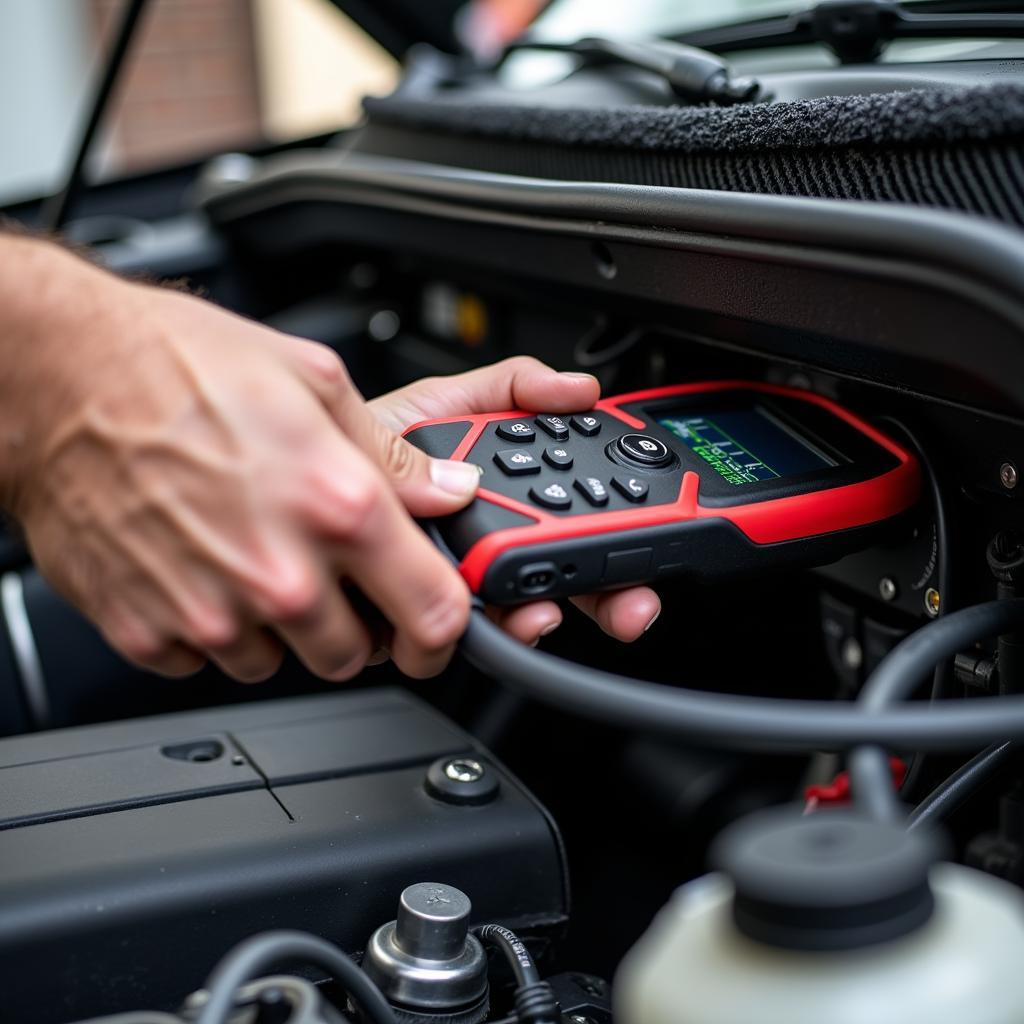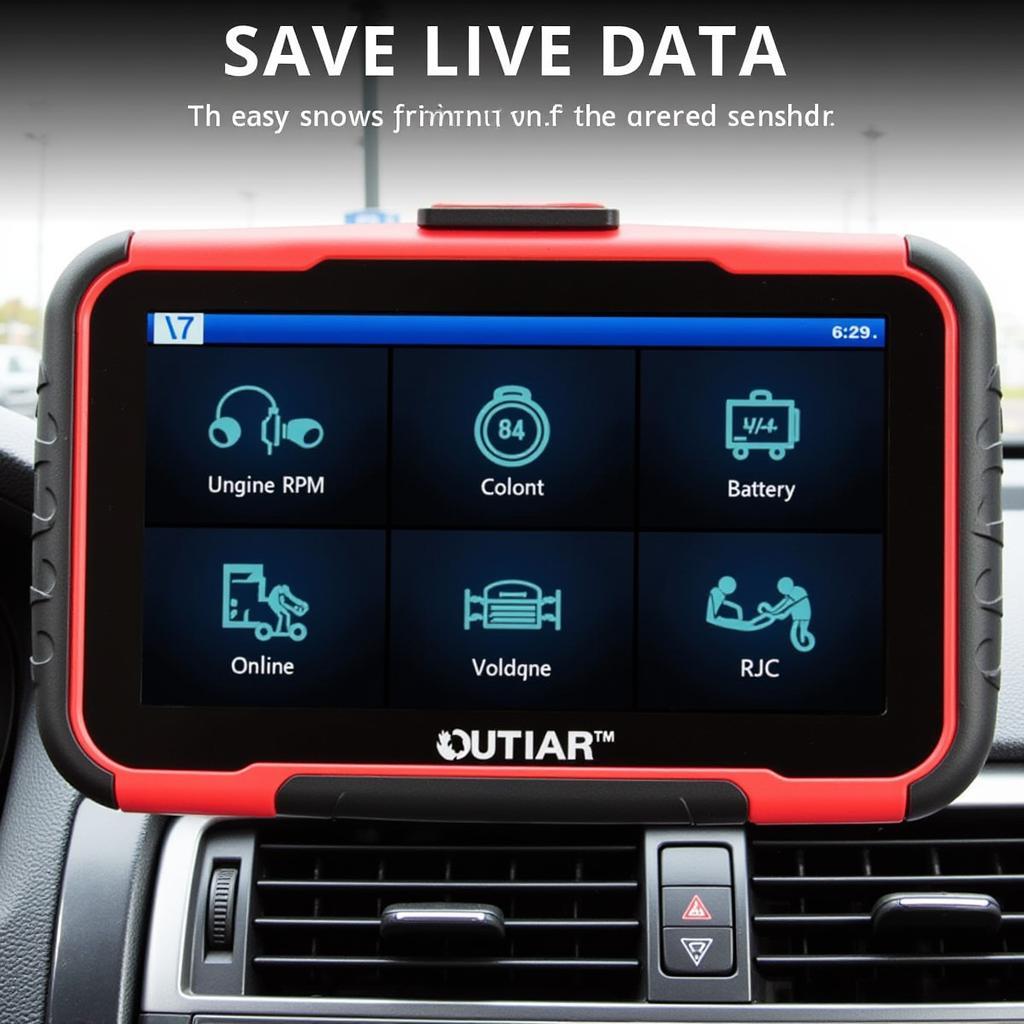Navigating the world of car maintenance can feel overwhelming, especially when it comes to diagnosing those pesky engine lights. A reliable car diagnostic tool can be a game-changer, empowering you to understand your car’s health and potentially save on expensive mechanic bills. But with a market flooded with options, finding the best car diagnostic tool for your needs requires careful consideration.
This comprehensive guide breaks down everything you need to know, from understanding the different types of car diagnostic tools to essential features and expert recommendations. Whether you’re a seasoned mechanic or a car enthusiast looking to DIY, we’ve got you covered.
Why You Need a Car Diagnostic Tool
Before we dive into the specifics, let’s address the elephant in the room: Do you really need a car diagnostic tool? The answer, in many cases, is a resounding yes. Here’s why:
- Early Problem Detection: A car diagnostic tool can detect issues before they escalate into major (and costly) repairs.
- Cost Savings: By identifying the root cause of a problem, you can avoid unnecessary repairs and save money at the mechanic.
- Increased Control: Understanding the diagnostics gives you more control over repair decisions and empowers you to negotiate effectively with mechanics.
- Enhanced Vehicle Knowledge: It’s like having a window into your car’s brain, providing valuable insights into its performance and maintenance needs.
 Mechanic using a car diagnostic tool
Mechanic using a car diagnostic tool
Types of Car Diagnostic Tools
Car diagnostic tools come in various shapes and sizes, each catering to different needs and budgets. Let’s explore the most common types:
1. OBD-II Code Readers
These entry-level devices are designed to read and clear basic diagnostic trouble codes (DTCs) from your car’s onboard computer. They are affordable, user-friendly, and perfect for beginners who want to understand the “check engine” light.
2. Bluetooth Scanners
Taking things up a notch, Bluetooth scanners connect wirelessly to your smartphone or tablet, providing a more convenient and detailed diagnostic experience. These tools offer real-time data monitoring, graphical representations of sensor data, and often come with dedicated apps for enhanced functionality.
3. Professional-Grade Scan Tools
As the name suggests, these are the big guns used by professional mechanics. They offer a comprehensive suite of features, including advanced diagnostics, programming capabilities, bi-directional controls (to activate components like solenoids and injectors), and access to manufacturer-specific data.
Choosing the Right Tool: Factors to Consider
With so many options, how do you choose the best car diagnostic tool for your needs? Consider these crucial factors:
- Your Budget: Prices can range from affordable code readers to high-end professional tools. Determine your budget range first.
- Your Skill Level: Are you a beginner, DIY enthusiast, or professional mechanic? Choose a tool that aligns with your technical expertise.
- Vehicle Compatibility: Ensure the tool you choose is compatible with the make, model, and year of your car (and any other vehicles you plan to use it on).
- Features: Identify the specific features that are important to you, such as live data streaming, graphing capabilities, or ABS diagnostics.
- User Interface: Opt for a tool with a user-friendly interface, clear navigation, and easy-to-understand data presentation.
Top Car Diagnostic Tool Features
While the specific features vary across different tools, here are some key functionalities to look for:
- Reading and Clearing DTCs: This is the most basic function of any diagnostic tool, allowing you to identify and clear trouble codes.
- Live Data Streaming: Monitor real-time data from various sensors, including engine RPM, coolant temperature, and oxygen sensor readings.
- Graphing Capabilities: Visualize data trends and anomalies for easier analysis and diagnosis.
- ABS and Airbag Diagnostics: Some tools can diagnose issues with the Anti-lock Braking System (ABS) and airbag systems.
- Bi-Directional Control: This advanced feature allows you to activate components like solenoids, injectors, and relays for testing purposes.
 Display of a car diagnostic tool with various readings
Display of a car diagnostic tool with various readings
Expert Insight: Finding the Perfect Fit
“Choosing the right car diagnostic tool is like finding the perfect wrench for the job,” says John Smith, a certified automotive technician with over 20 years of experience. “You wouldn’t use a hammer to tighten a bolt, and similarly, you need the right diagnostic tool to effectively troubleshoot your car’s issues.”
Smith emphasizes the importance of understanding your individual needs and skill level when selecting a tool. “For basic maintenance and understanding those pesky ‘check engine’ lights, a simple OBD-II code reader might suffice. However, if you’re a seasoned DIYer or work on multiple vehicles, investing in a more advanced tool with live data streaming and bi-directional controls can be a game-changer,” he adds.
Conclusion
Finding the best car diagnostic tool doesn’t have to be a daunting task. By understanding your needs, researching different types and features, and considering expert recommendations, you can equip yourself with the knowledge and tools to keep your vehicle running smoothly. Remember, a small investment in a car diagnostic tool can save you significant time, money, and frustration in the long run.
Looking for more in-depth information about specific car diagnostic tools? Check out our detailed reviews and comparisons to make an informed decision:
- What’s the Best Car Diagnostic Tool
- What’s the Best Car Diagnostic Tool UK
- Which Car Diagnostic Tool is the Best
- Can a Car Diagnostic Read Find a Broken Fuse
- How Much Does a Diagnostic for Car Cost
Need personalized assistance choosing the right tool? Contact our team of car diagnostic experts via WhatsApp: +1(641)206-8880 or Email: [email protected]. We’re here to help 24/7.

Leave a Reply